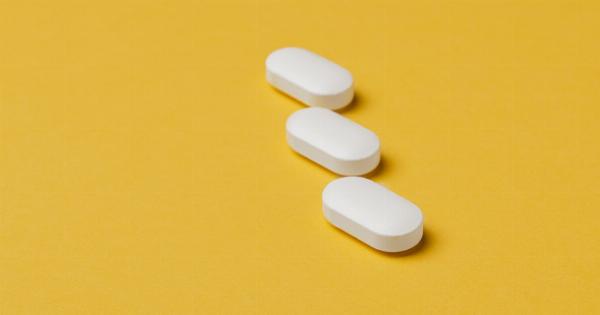Digestive ulcers, also known as peptic ulcers, occur when the lining of the stomach or small intestine becomes damaged and creates an open sore.
The most common cause of digestive ulcers is infection with the bacteria Helicobacter pylori, but they can also develop due to long-term use of nonsteroidal anti-inflammatory drugs (NSAIDs) or excessive alcohol consumption.
Symptoms of digestive ulcers include abdominal pain, nausea, vomiting, weight loss, and a feeling of fullness or bloating.
While medication and lifestyle changes can help manage ulcers, dietary modifications are also crucial to promote healing and prevent complications.
1. Avoid Trigger Foods
Certain foods can exacerbate symptoms and irritate the ulcer, so it is best to avoid them. Trigger foods include spicy or acidic foods, caffeine, alcohol, chocolate, fried and fatty foods, and high-sugar foods.
2. Focus on Fiber
Fiber is essential for digestive health and can help prevent constipation, a common complication of ulcers. Choose whole grains, fruits, and vegetables to increase fiber intake.
However, avoid tough or rough-textured foods that may be difficult to digest.
3. Choose Lean Proteins
Protein is necessary for tissue repair and can help promote ulcer healing. Choose lean protein sources such as fish, skinless poultry, tofu, and beans.
4. Incorporate Probiotics
Probiotics are beneficial bacteria that can promote gut health and prevent the growth of harmful bacteria, like H. pylori. Incorporate foods such as yogurt, kefir, sauerkraut, and tempeh to increase probiotic intake.
5. Stay Hydrated
Drink plenty of water and other fluids to keep the digestive system hydrated and prevent constipation. Avoid carbonated beverages and caffeine, which can irritate the ulcer.
6. Eat Small, Frequent Meals
Eating small, frequent meals can help avoid overloading the gut and prevent discomfort. Aim for three to six meals per day, depending on your tolerance. Avoid eating within two to three hours of bedtime.
7. Consider Vitamin and Mineral Supplements
Vitamin and mineral deficiencies can occur with ulcers due to poor nutrient absorption. Consider taking a supplement that contains vitamin C, zinc, and glutamine to help promote healing.
8. Seek Medical Advice
If you have digestive ulcers, it is important to seek medical advice before making any dietary changes. Your doctor may recommend certain foods or supplements to help manage your condition.
9. Maintain a Healthy Weight
Excess weight can increase pressure on the stomach and aggravate ulcers. Maintain a healthy weight through a balanced diet and regular exercise.
10. Practice Stress-Reduction Techniques
Stress and anxiety can exacerbate ulcers and delay healing. Practice stress-reduction techniques such as deep breathing, meditation, or yoga.




























